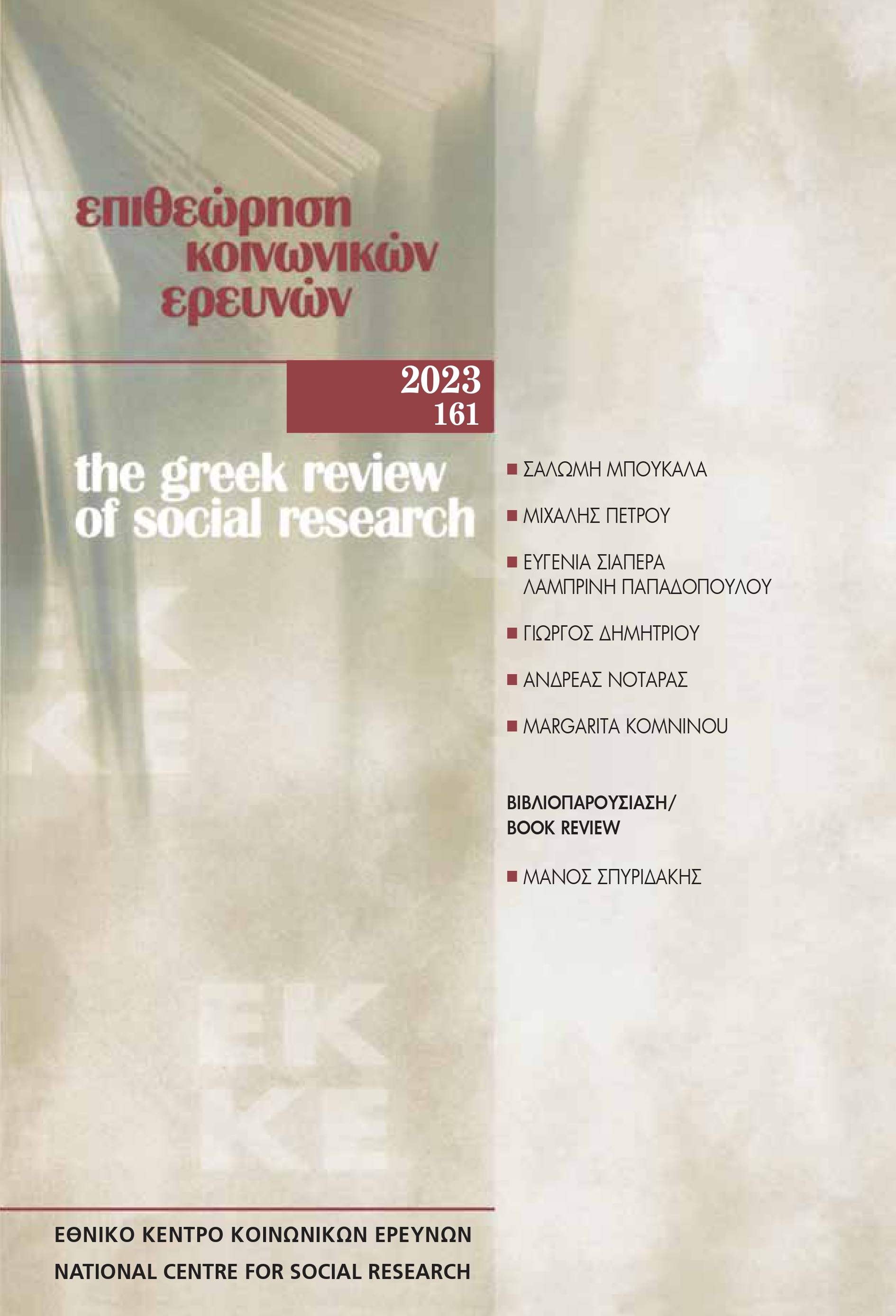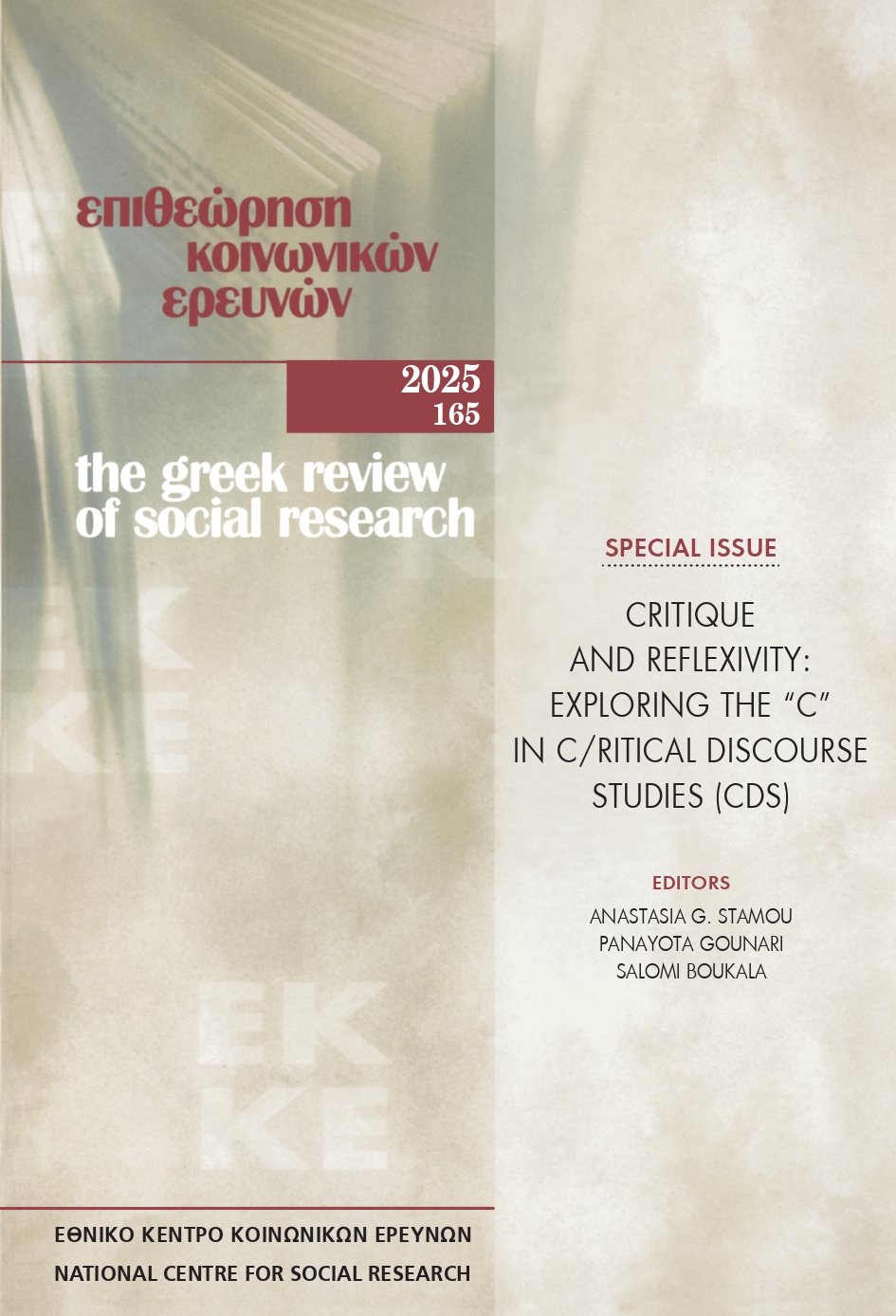Τhe legitimation of anticommunist political discourse in Greece during the crisis

Abstract
Drawing upon the framework of Discourse Historical Approach to Critical Discourse Analysis and combining it with the argumentative perspective of the Aristotelian tradition, this article attempts to show how the banality of anticommunism dominated the Greek political scene in a period that extends from Venizelos’ Idionymon and especially to the recent economic and political crisis. Based on the theoretical frames of legitimation and totalitarianism, my aim is to explain how anti-communist discourse escalates in times of crisis and is extended beyond the limits of far right rhetoric, while being legitimized on the basis of the ‘communist threat’ archetype.
Article Details
- How to Cite
-
Boukala, S. (2023). Τhe legitimation of anticommunist political discourse in Greece during the crisis . The Greek Review of Social Research, 161, 3–33. https://doi.org/10.12681/grsr.34989
- Issue
- 2023: 161
- Section
- Articles

This work is licensed under a Creative Commons Attribution-NonCommercial 4.0 International License.
Authors who publish with this journal agree to the following terms:
- Authors retain copyright and grant the journal right of first publication with the work simultaneously licensed under a Creative Commons Attribution Non-Commercial License that allows others to share the work with an acknowledgement of the work's authorship and initial publication in this journal.
- Authors are able to enter into separate, additional contractual arrangements for the non-exclusive distribution of the journal's published version of the work (e.g. post it to an institutional repository or publish it in a book), with an acknowledgement of its initial publication in this journal.
- Authors are permitted and encouraged to post their work online (preferably in institutional repositories or on their website) prior to and during the submission process, as it can lead to productive exchanges, as well as earlier and greater citation of published work (See The Effect of Open Access).



